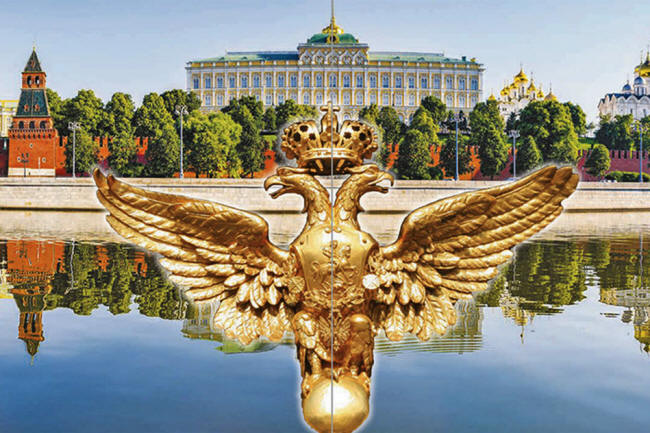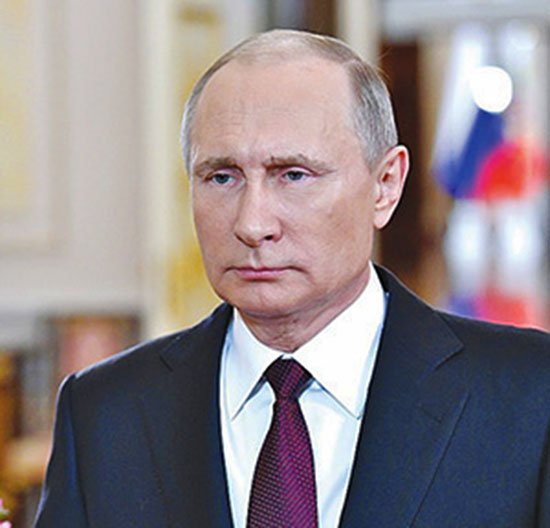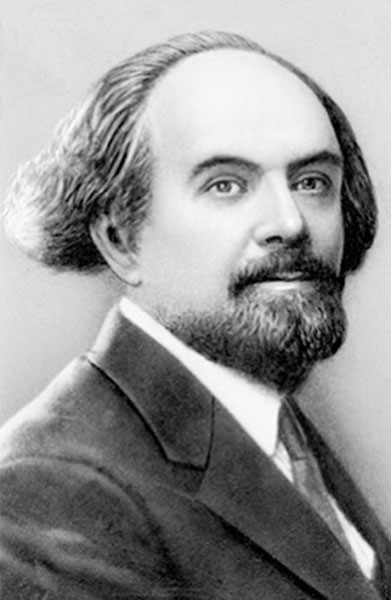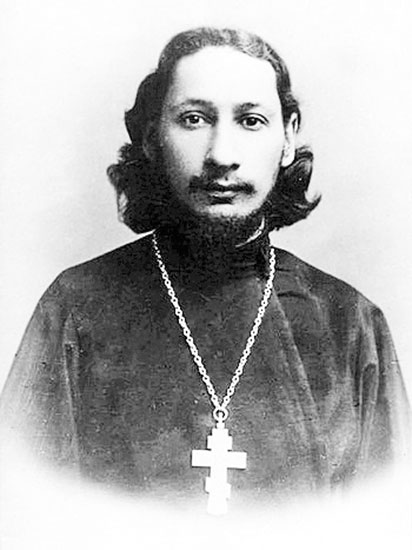|

by Gary Lachman
New Dawn 178
Jan-Feb 2020
from
NewDawnMagazine Website

|
The
following is excerpted from the Introduction of
The Return of Holy Russia -
Apocalyptic History, Mystical Awakening and the Struggle
for the Soul of the World (published in May
2020).
In it as point out, one of the reasons for writing the
book, specifically the idea that Russian President
Vladimir Putin is very keen on revitalizing the
notion of Russia as the last bastion of the true faith,
the bearer of the true Word in an age of unholy
godlessness, a mantle it last wore in the nineteenth
century.
Why would Putin want to do this?
Is his belief and defence of "traditional values"
genuine, or merely a means of providing Russia with
an identity, something that seems to have slipped
away from it through the years of turbulence and
chaos following the breakup of the Soviet Union?
Yet
it is no secret that except for the brief seventy years
of Soviet rule, Russia was the most mystical of Western
nations - if indeed it is a "Western" nation at all.
As
the reader will see here, and as I spell out in greater
detail in the book, Russia's history has always been
informed by mystical, spiritual ideas and powerful
religious feelings.
And
it has always been a nation with an ineradicable sense
that history was leading somewhere.
To
where, exactly?
Well, that would be telling, but as I say, Russians have
not given lip service to the apocalypse. For better or
for worse, the Russian soul has never had the end times
too far from its thoughts.
What
might that mean for us today? That is another question I
devote more than a few pages to in the book.
Gary
Lachman |
Welcome to the
Silver Age - A Time of Magic and Mysticism
Another idea that [Russian President Vladimir] Putin
is taking seriously is that of,
Russia as a nation of "traditional values"...
It is along these lines that commentators are
beginning to speak of,
a new cold war opening up
between Russia and the West...
Skirmishes here are not triggered by
ideological clashes between capitalism and communism, but by,
different moral, ethical, and religious
worldviews...
To think of Russia, home of gangland politics and
ostentatious oligarchs, as more morally sensitive than the West may
seem counterintuitive.
But in Putin's Russia, the extreme liberalism and
permissiveness that characterize Western society - its "anything
goes" sensibility - smacks of little more than decadence, and our
commercialization of practically everything reeks of selfishness and
ego gratification.
Nothing seems to resist the spread of the "me"
economy, in which everything is yielding and negotiable, even
reality.
Compared to this, Putin's Russia upholds more
"traditional" standards, and its attitude toward sex, family, and
gender roles seems to the "progressive" West highly conservative,
if not repressive...

Russian President
Vladimir Putin
Putin finds his traditional values in his Orthodox belief,
and it is in this role of defender of the true faith that, along
with Eurasia and the thinkers of the Silver Age, the idea of
Holy Russia seems to be making a comeback.
This was an identity that Russia and her
"God-bearing people" embraced practically from the start,
-
from their earliest adoption of Orthodox
Christianity,
-
to the attempt at a theocratic rule
during the
Muscovite empire of the
late Middle Ages
-
to the idea of its being a "Third Rome,"
after the downfall of the first one and the capture of
Constantinople by the Turks in 1453...
And it is here, perhaps, that we can find the
roots of the notion that Russia has a "mission," that special
destiny that informs the different versions of the "Russian idea."
Although many fine points of doctrine and dogma separate the
Eastern Orthodox Church from
Roman Catholicism and Protestantism, one thing
that does set Russian Orthodoxy apart from its Western
counterparts is,
its attitude toward the end-time, the
Apocalypse, and the Second Coming.
While these are indeed part of the Western
Church, it has generally damped down any millenarian zeal, and
focused more on dealing with the crises and challenges of everyday
life.
"Repent ye sinner for the end is nigh," is
left to street-corner prophets and Jehovah's Witnesses.
The Western Church has been more this-worldly,
and its interest in worldly power is one of the criticisms that its
eastern counterpart has made against it.
The end days, however, have always been of great importance to the
Eastern Church, which has always been more open to mysticism and
esoteric knowledge.
Its focus has been more eschatological than the
West, and this anticipation of the Second Coming and the
establishment of the Kingdom of Heaven on Earth was something
that the Russian people embraced wholeheartedly when they accepted
Eastern Orthodoxy as their religion.
They took the idea of rebirth very
seriously; this is why Easter is a much more important holy day in
the Orthodox calendar than Christmas.
Resurrection was of the essence.
They did not give lip service to the
Apocalypse...

Russian religious philosopher
Nikolai
Berdyaev (1874–1948)
This belief that the world was moving toward some event after which
everything would be different became a part of the Russian soul.
As [the Russian religious philosopher Nikolai]
Berdyaev said,
Russians are either "apocalyptists" or
"nihilists," that is, for them it is a case of everything or
nothing, either the millennium and Heaven on Earth or the void.
But the mystical, spiritual character of the
Russian soul seemed to be in place even before its contact with
Orthodoxy and its embrace of the true faith.
The Russian people had a rich pagan tradition
full of gods and goddesses, elemental forces, and nature
spirits.
As with other pagan people converted to
Christianity - of whom the Russians were one of the last - this
tradition did not die out but was maintained alongside the new
Christian belief, an arrangement known as dvoeverie, "double
faith," an example, perhaps, of the ability of the Russian soul to
hold contradictory ideas simultaneously, and of the tensions at work
in doing so.

Father Pavel Florensky
(1882–1937)
With the aid of mystically potent icons - "windows on another world"
as they were called by Father Pavel Florensky, an important
figure of the Silver Age - this native paganism helped the
spread of Orthodoxy within Russia.
During the centuries of the "Mongol yoke," the
influence of
shamanism and other magical
practices reached the courts of the vassal Russian princes, and when
that yoke had been broken, in the days of the Muscovite empire,
alchemists, Hermeticists, Kabbalists, and
other savants of the occult sciences were welcomed and their
counsel sought.
Esoteric ideas even made their way to Tsar
Alexander I, the savior of Europe in the Napoleonic wars and
leader of the Holy Alliance, who was believed to have faked his own
death in order to retire from power to spend his last days in
spiritual contemplation.
That the last days of the Romanovs
were filled with mystical and apocalyptic expectation is well known.
Rasputin is the most notorious figure
here, but he was not the only mystical character giving advice
to the doomed dynasty...
And in the years of Soviet rule, ideas of
an occult, mystical, and magical character continued to influence
the commissars and comrades of the great Bolshevik experiment, with
God-seekers becoming God-builders.
More than one historian has noted that the
millenarian trend in Russia thought made it more receptive to the
Marxist vision of a coming classless utopia.
With Putin's interest,
-
in notions such as Eurasia
-
in the philosophers of the Silver Age
-
his gestures toward Holy Russia,
...this Russian interest in things mystical and
apocalyptic seems to be continuing...!
|





